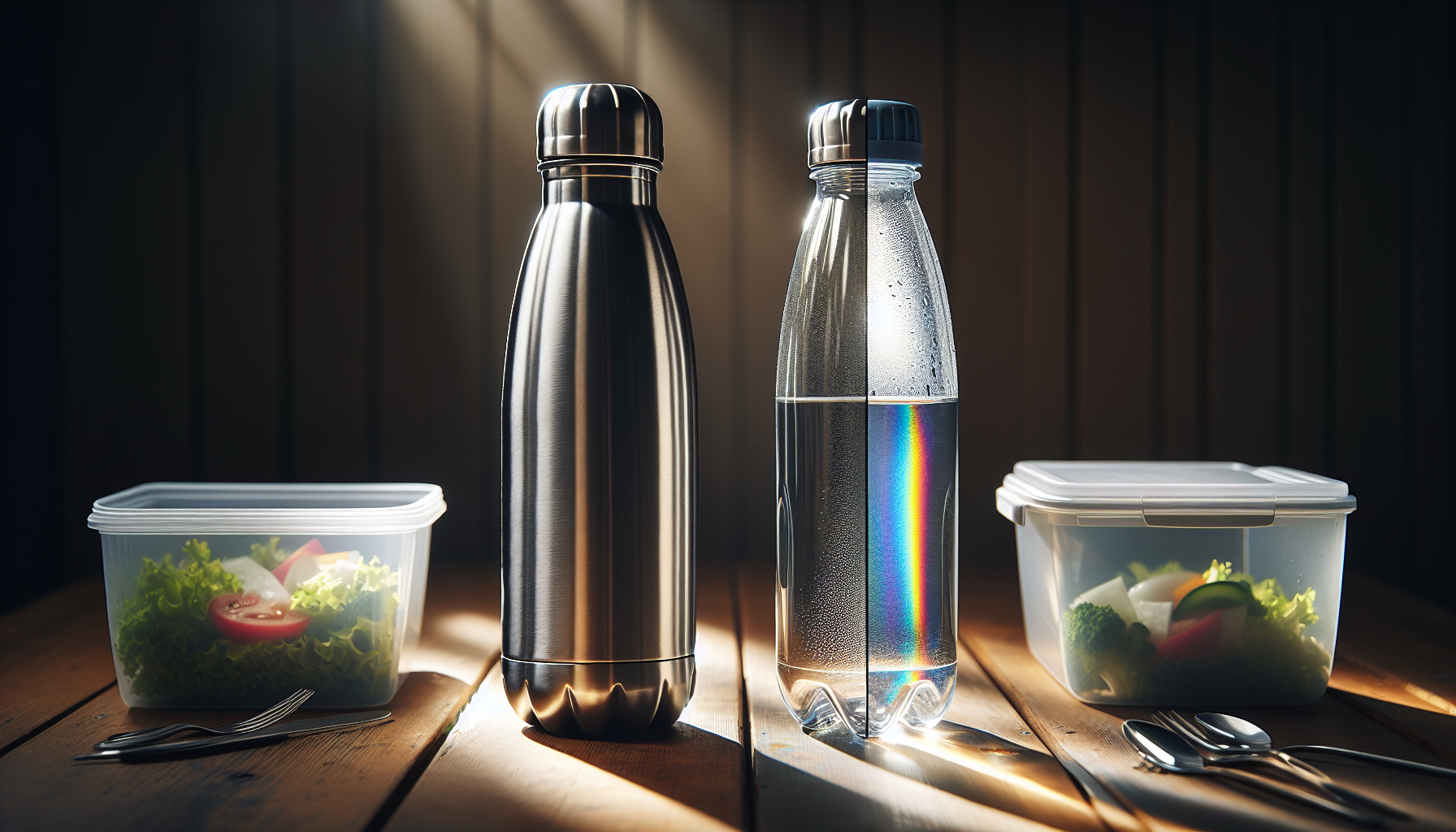Is Stainless Steel Or BPA‑free Plastic Better?
Introduction
When it comes to choosing the right material for your water bottle, lunch container, or utensils, it can be overwhelming to decide between stainless steel and BPA‑free plastic. Both materials have their own advantages and disadvantages, so how do you know which one is the best choice for you? Let’s dive deeper into the pros and cons of stainless steel and BPA‑free plastic to help you make an informed decision.
Stainless Steel
Stainless steel is a durable and long-lasting material that is known for its strength and resistance to rust and corrosion. It is easy to clean and does not retain odors or flavors from previous use. Stainless steel is also a recyclable material, making it an eco-friendly choice for those looking to reduce their environmental impact.
BPA-Free Plastic
BPA‑free plastic is a lightweight and shatterproof alternative to stainless steel. It is often used in food and beverage containers because it is safe for storing and transporting food. BPA‑free plastic is also more affordable than stainless steel, making it a budget-friendly option for those looking to save money.
Durability
When it comes to durability, stainless steel is the clear winner. Stainless steel is a robust material that can withstand drops, falls, and other accidents without easily denting or breaking. On the other hand, BPA‑free plastic is more prone to cracking, chipping, and warping when exposed to high temperatures or rough handling.
If you are looking for a water bottle or lunch container that can keep up with your busy lifestyle, stainless steel is the better choice in terms of durability. However, if you are careful with your belongings and prioritize lightweight materials, BPA‑free plastic may be a suitable option for you.

Safety
One of the biggest concerns with plastic products is the presence of BPA, a chemical that has been linked to various health issues, including hormonal imbalances and reproductive problems. BPA‑free plastic is designed to be free of this harmful chemical, making it a safer choice for storing food and beverages.
Stainless steel, on the other hand, is a non-reactive material that does not leach any harmful chemicals into your food or drinks. It is a safe and reliable option for those who want to avoid any potential health risks associated with plastic products.
Eco-Friendliness
If you are environmentally conscious and looking to make more sustainable choices in your daily life, stainless steel is the way to go. Stainless steel is a fully recyclable material that can be melted down and reused to create new products. By choosing stainless steel over BPA‑free plastic, you are reducing your carbon footprint and contributing to a cleaner, greener planet.
BPA‑free plastic, while safer than traditional plastic products, is still a petroleum-based material that is not biodegradable. This means that once it reaches the end of its lifespan, it will sit in a landfill for hundreds of years, releasing harmful chemicals into the environment. If you are looking for a more eco-friendly option, stainless steel is the more sustainable choice.

Insulation
If you are someone who enjoys having hot or cold beverages throughout the day, the insulation properties of your water bottle or travel mug are important. Stainless steel has excellent heat retention and can keep your drinks at the desired temperature for hours. It is a great choice for those who want to enjoy their coffee or tea piping hot or their water icy cold.
BPA‑free plastic, on the other hand, does not have the same insulation properties as stainless steel. It may not keep your drinks as hot or cold for as long, which can be a drawback for those who need their beverages to stay at a certain temperature for an extended period of time.
Maintenance
When it comes to cleaning and maintenance, both stainless steel and BPA‑free plastic have their own pros and cons. Stainless steel is dishwasher safe and easy to clean with soap and water. It does not retain odors or flavors from previous use, making it a hassle-free choice for those who want a low-maintenance option.
BPA‑free plastic, on the other hand, can be more challenging to clean, especially if it has stains or odors that are difficult to remove. While it is generally safe to wash BPA‑free plastic in the dishwasher, some manufacturers recommend hand washing to prolong the life of the product. If you are someone who values convenience and ease of maintenance, stainless steel may be the better option for you.

Cost
Cost is often a significant factor when choosing between stainless steel and BPA‑free plastic products. Stainless steel tends to be more expensive upfront but offers long-term durability and sustainability, making it a worthwhile investment for those who want a product that will last for years to come.
BPA‑free plastic, on the other hand, is a more affordable option for those on a budget. While it may not last as long as stainless steel, it can still provide a safe and convenient way to store food and beverages without breaking the bank.
Conclusion
In conclusion, both stainless steel and BPA‑free plastic have their own unique benefits and drawbacks. If you prioritize durability, safety, and eco-friendliness, stainless steel is the better choice for you. On the other hand, if you are looking for a lightweight, affordable option that is safe for storing food and beverages, BPA‑free plastic may be the right fit for your needs.
Ultimately, the decision between stainless steel and BPA‑free plastic comes down to your personal preferences and lifestyle. Consider what factors are most important to you, whether it be durability, safety, insulation, maintenance, or cost, and choose the material that aligns with your values and priorities. By making an informed decision, you can select the best water bottle, lunch container, or utensils that suit your needs and preferences.

